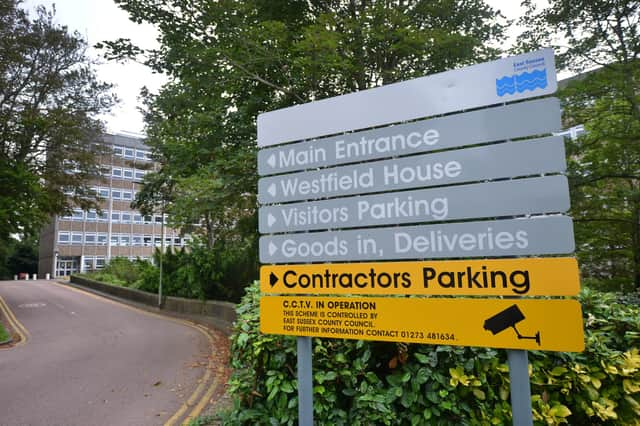East Sussex's special educational needs process 'fundamentally broken'


Earlier this year, Cllr Sean Macleod, a Lib Dem councillor, lodged a Freedom of Information (FOI) request asking the county council to share details about its assessment and issuing of Education Health and Care Plans (EHCPs).
Among other things, the response revealed that almost every appeal lodged between the 2017/18 and 2020/21 academic years had resulted in a county council decision being overturned.
Advertisement
Hide AdAdvertisement
Hide AdWhile ESCC says this is not unusual when the figures are compared to other local authorities, Cllr Macleod argues it shows there is a significant issue with the process.
He said he found the numbers ‘staggering’ and suggested it showed ‘something very wrong with the process’ at ESCC.
He added: “Someone has to take account for the stress and anxiety that families are being put through. I meet residents regularly and it’s clear the system is fundamentally broken and it has to change.”
EHCPs are legal documents which set out the support pupils with particularly complex Special Educational Needs and Disabilities (SEND) should be entitled to. They are intended for pupils who need more help than schools can typically provide.
Advertisement
Hide AdAdvertisement
Hide AdParents and professionals can apply to local authorities such as ESCC for assessments over whether such plans are needed. The council then decides whether to undertake these assessments and, afterwards, whether to issue an EHCP.
These decisions can be appealed, however, and Cllr Macleod’s FOI revealed that almost every appeal lodged between the 2017/18 and 2020/21 academic years resulted in a council decision being overturned.
Despite the high success rate of appeals, ESCC says these figures are not unusual when compared to other parts of the country.
The appeals also account for a relatively small proportion of the council’s overall decisions.
Advertisement
Hide AdAdvertisement
Hide AdAn ESCC spokesperson said: “We recognise that there are a comparatively high number of appeals across East Sussex but we are confident that our decision making is in line with the expectations set out in the SEND Code of Practice, involving highly-trained professionals from a wide range of schools and services.”